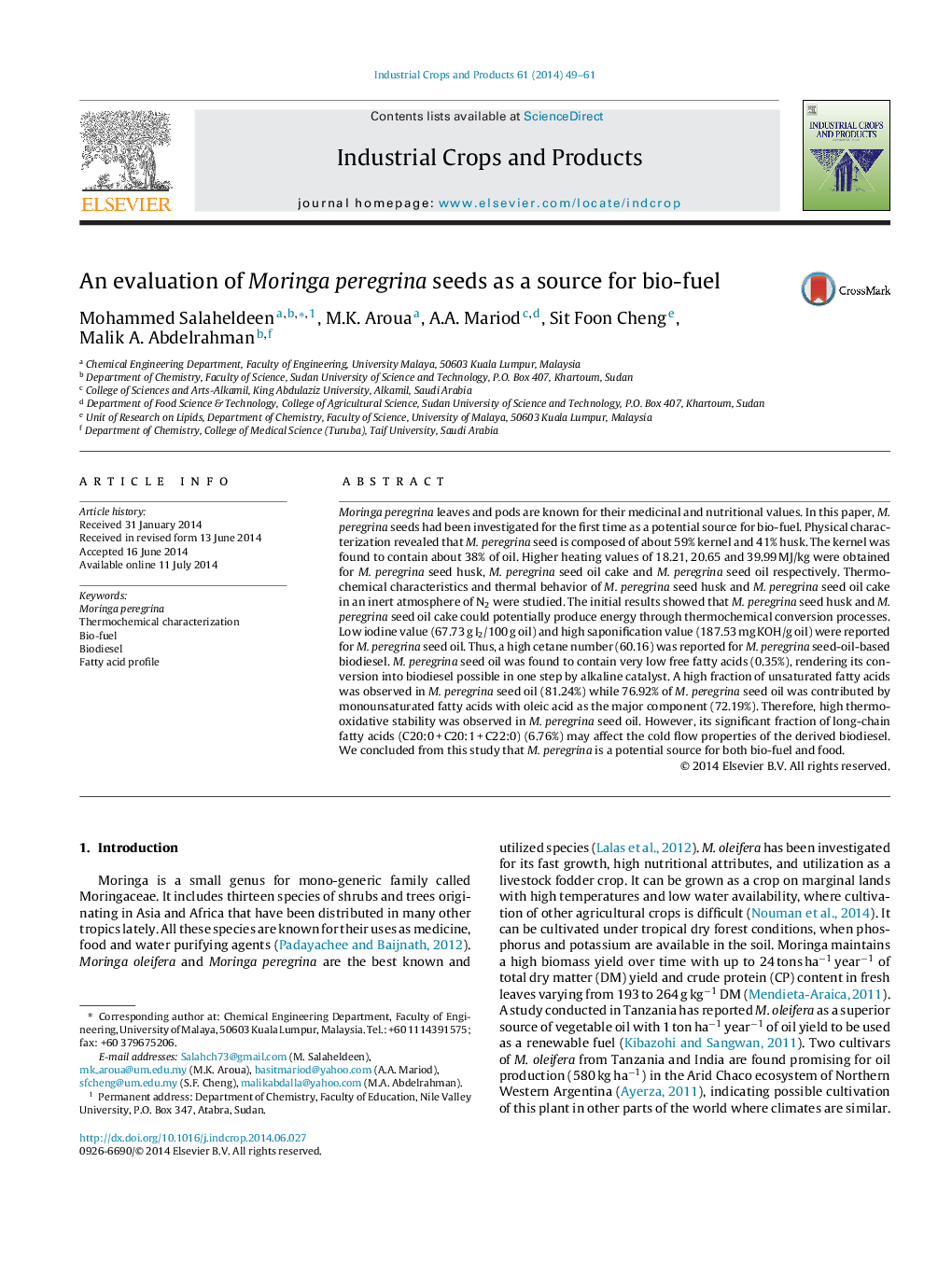| کد مقاله | کد نشریه | سال انتشار | مقاله انگلیسی | نسخه تمام متن |
|---|---|---|---|---|
| 4513174 | 1624848 | 2014 | 13 صفحه PDF | دانلود رایگان |
• Moringa peregrina seed is composed of 59% kernel and 41% husk. The kernel was found to contain 38% oil.
• Seed oil cake and seed husk of M. peregrina seeds can be converted to energy by thermochemical conversion processes.
• Seed oil of M. peregrina was found to have high degree of unsaturation and remarkable thermal and oxidative stability.
• This study revealed that Moringa peregrina seed oil is a promising feedstock for production of biodiesel.
• M. peregrina is potential to produce both bio-fuel and food.
Moringa peregrina leaves and pods are known for their medicinal and nutritional values. In this paper, M. peregrina seeds had been investigated for the first time as a potential source for bio-fuel. Physical characterization revealed that M. peregrina seed is composed of about 59% kernel and 41% husk. The kernel was found to contain about 38% of oil. Higher heating values of 18.21, 20.65 and 39.99 MJ/kg were obtained for M. peregrina seed husk, M. peregrina seed oil cake and M. peregrina seed oil respectively. Thermochemical characteristics and thermal behavior of M. peregrina seed husk and M. peregrina seed oil cake in an inert atmosphere of N2 were studied. The initial results showed that M. peregrina seed husk and M. peregrina seed oil cake could potentially produce energy through thermochemical conversion processes. Low iodine value (67.73 g I2/100 g oil) and high saponification value (187.53 mg KOH/g oil) were reported for M. peregrina seed oil. Thus, a high cetane number (60.16) was reported for M. peregrina seed-oil-based biodiesel. M. peregrina seed oil was found to contain very low free fatty acids (0.35%), rendering its conversion into biodiesel possible in one step by alkaline catalyst. A high fraction of unsaturated fatty acids was observed in M. peregrina seed oil (81.24%) while 76.92% of M. peregrina seed oil was contributed by monounsaturated fatty acids with oleic acid as the major component (72.19%). Therefore, high thermo-oxidative stability was observed in M. peregrina seed oil. However, its significant fraction of long-chain fatty acids (C20:0 + C20:1 + C22:0) (6.76%) may affect the cold flow properties of the derived biodiesel. We concluded from this study that M. peregrina is a potential source for both bio-fuel and food.
Journal: Industrial Crops and Products - Volume 61, November 2014, Pages 49–61
